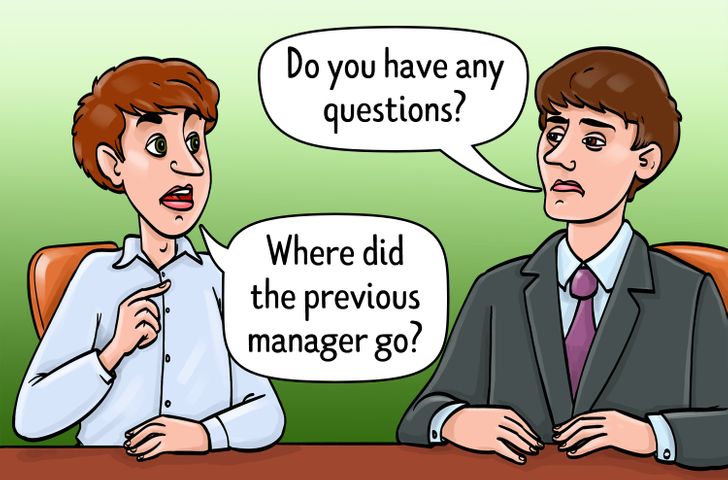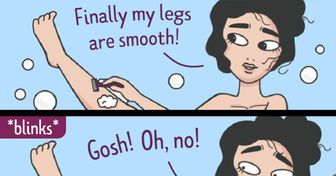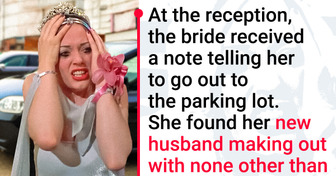I just learned that you can always tell your employer about your sport achievement or any other achievements that are not connected to your work!
6 Ways to Answer the Tricky Questions Recruiters Ask During Job Interviews
Most of those who are looking for a job don’t like the phrase “We’ll be in touch!” because it is basically perceived as a softer version of, “You’re not right for us.” That’s why every time, after an unsuccessful interview, we are left guessing what exactly the recruiter didn’t like in us. Do we lack the experience or did the recruiter fail to appreciate our skills fully? Or perhaps we shouldn’t have been so honest about our imperfections?
Based on job search sites, recruiters’ articles, and the opinion of internet users, we at Bright Side decided to answer the most tricky questions you might hear at a job interview.
“What are your weaknesses?”
Don’t joke about your weaknesses and laugh them off, but instead admit them honestly. The coolest thing for the person interviewing you will be to see how you turned your weaknesses into advantages. For example, one year ago your English proficiency was pretty bad, but you signed up for language courses and can now speak English fluently. There are no perfect flawless people and the recruiter will appreciate your mature approach: admitting your imperfections and working hard on them.
“How would your colleagues describe you?”
Perhaps a person might want to say something sarcastic or openly praise themselves when answering a question like this — but you should try not to do that. The goal of the recruiter is to find out if the candidate can sensibly evaluate themselves from the outside. You can answer the question approximately in the following way, “I think people appreciate ..... in me the most,” and list your strong suits in between. Are you always ready to help when colleagues can’t do something? Perfect, talk about it. This answer won’t look boastful, but at the same time, it’s another chance to show yourself from a good side.
“If you were a fruit, what would you be?”
The point of these abstract questions is to see the candidate’s reaction to them in real-time. Will they get confused, brush the question off, or say that they don’t understand the question? All of this can show the recruiter how a potential employee will behave in unexpected situations at work. There is no right answer to this kind of question. It doesn’t matter whether you will choose an orange or an apple (however, if you name some exotic fruit, the recruiter might appreciate your non-standard thinking). The most important thing is to not start feeling nervous but to answer calmly, with a smile, and explain your answer.
“Describe yourself with one word.”
You can use both adjectives and nouns to describe yourself. Don’t choose them randomly, but instead pick them based on your future position. Are you aiming for the position of the head of the department? If yes, then answer, “Leader.” There are also universal answers like “realist” or “extrovert.”
“If we stop paying you, will you continue working with us?”
Usually, candidates answer “yes” because they think that this is exactly what the potential employer is expecting from them — full dedication and commitment. In reality, things are a bit different — the employer likely wants to find an employee who knows the value of their professional skills. That’s why the right answer is “not really.”
“Do you have any questions for me?”

This question often finishes the interview. It would be perfect if you get prepared for it and decide what you are going to ask the recruiter about. Don’t ask questions about things you can easily find the answers to in the description of the vacancy or on the company’s website. At the same time, the absence of questions can alert the recruiter. For example, you could try to find out why the previous employee who was in this position left — it will help you to kill 2 birds with 1 stone: you’ll demonstrate the presence of analytical skills and will be able to avoid the mistakes of your predecessor when you start work.
Do you know any secrets for a successful interview?
Comments
if they are not connected to work, then why would you talk about them?
if you achieved something outside your profession it can also show your employer that you have perseverance and know how to set aim and reach them. This means you can do the same in the work you ae applying for
Related Reads
An Artist Draws Relatable Comics That Can Make Any Girl Yell, “Gosh, That’s My Life!”

19 Parents Shared How They Reacted When They Saw Their Newborn Babies for the First Time

14 Small Details That Will Make Any Woman Look Gorgeous and Polished

“Screams Desperation,” Nicole Kidman, 56, Stuns in a Risqué Dress, But People Say It’s Not Age-Appropriate

Zac Efron’s Appearance a Few Days Ago Leaves Fans Shocked and Worried

Model Lost Entire Lips in Pitbull Attack, And She Reflects on Her Recovering Journey

Miley Cyrus Causes a Stir by “Leaving Nothing to the Imagination” as She Wears an Extremely Revealing Dress

A Woman Used Botox Because She Wanted to Look Like Her Younger Self, and According to People Online She Succeeded

Selena Gomez Was Body Shamed Following Her Latest Red Carpet Appearance, and Her Reaction Was Priceless

Tom Cruise Deemed Unrecognizable in New Pics With Prince William, as Some Say He Had “Too Much Surgery”

A Girl Born Without Nose, Who Was Called “Voldemort”, Proved Everyone Is Beautiful in Their Own Way

15+ Weddings That Had the Worst Kind of Ending





